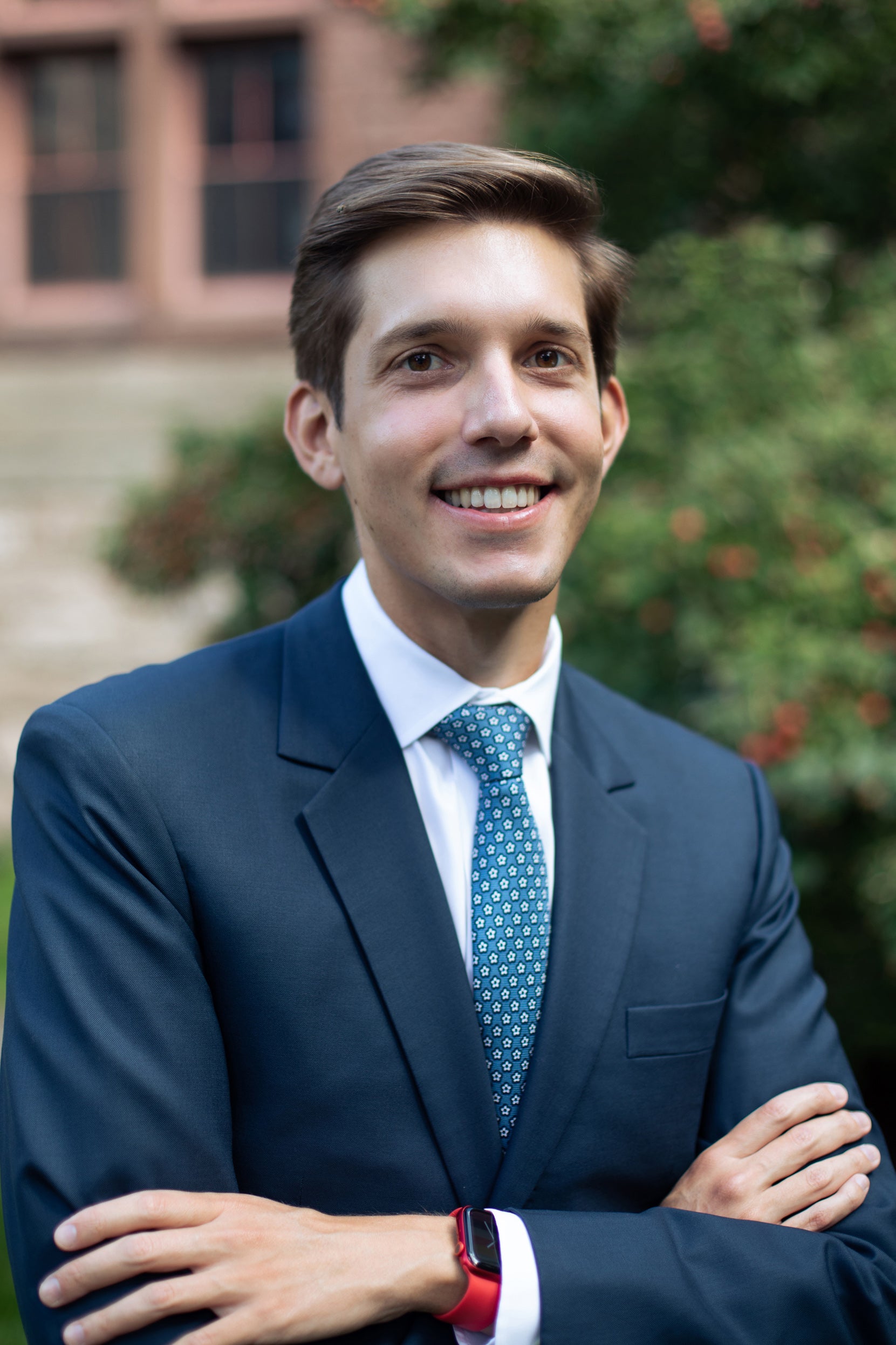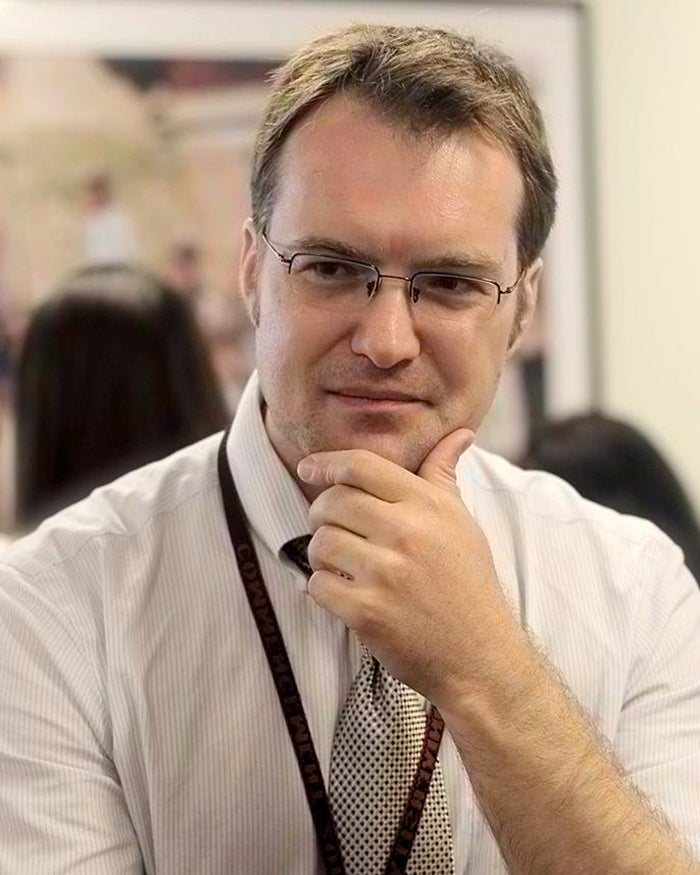A “purpose-driven company” is an enterprise “in which the shareholders commit to have a social and environmental impact besides the economic activity of the company,” Juan Diego Mujica Filippi LL.M. ’19 explains. “That’s a very simple definition. Some companies have a corporate responsibility goal which is not connected to their economic activity. Others decide to embed social or economic impact in what the company does to earn money. There are several ways in which purpose-driven companies can flourish.”
Over the past eight years, Mujica Filippi’s enthusiasm for the concept — and what it could mean for countries in his native Latin America — has also flourished. When he was pursuing his first degree in law at the University of Lima, he spent a semester abroad at the University of Ottawa, where he explored benefit corporations — the legal model for purpose-driven companies most commonly used in the United States. When he returned to Lima, he drafted legislation to adopt the model in Peru. He has studied it, lobbied for it, and championed it ever since.

Among other efforts, Mujica Filippi worked closely with a task force advising Peruvian congressman Alberto de Belaúnde, who supported the proposed legislation. In 2020, their work culminated in the enactment of a new law establishing the benefit corporation model in Peru. Since its passage, he has advised his country’s Ministry of Industry on its implementation.
“I always cared deeply about social and environmental impacts and how to make Peru and other countries in the region better. This concept took many of the things that I was already passionate about and put them into a legal construct,” he recalls. At the same time, “I had these pressing questions about how I could arrange my studies and my career to incorporate both public interest and the private sector — working toward something that will not only create public good, but is also driven by the enormous force of the market. My goal in coming to HLS was to learn about U.S. corporate law, and to understand the ways in which it influences corporate law abroad. I knew that there were incredible legal scholars at HLS who would challenge me to think about it in a critical way.”
At HLS, Mujica Filippi enrolled in courses that strengthened his knowledge of corporate law and organizational theory, and cross-registered at the Harvard Kennedy School and Harvard Business School to study subjects like corporate social responsibility and reimagining capitalism. He also participated in a seminar called “Business and Human Rights: Bridging the Gap” led by then-S.J.D. candidate Malcolm Rogge S.J.D. ’19, which focused on considering human rights risks to people as distinct from risks to business, and got to know HLS alumni with similar interests, including Carolina Henríquez-Schmitz LL.M. ’07 from Venezuela, who, at the time, was the executive director of the Grunin Center for Law and Social Entrepreneurship at NYU.
After completing his LL.M. program, Mujica Filippi was brought in as the academic coordinator for “Purpose-Driven Companies and the Regulation of the Fourth Sector in Ibero-America,” an international research project sponsored by the Ibero-American General Secretariat (a cooperation and support organization encompassing Spain, Portugal, Andorra, and 19 countries in Latin America), the United Nations Development Programme, and Canada’s International Development Research Centre. In this role, Mujica Filippi organized a team of more than 16 authors from Latin America, Morocco, Europe, the U.S., and Canada, who reported on the law and regulation of purpose-driven companies in their own countries, exploring not only legal models but the broader ecosystem — including tax incentives and public procurement measures — necessary for them to succeed.
“In the U.S., 36 states have benefit corporation legislation; Italy, France, and four Latin American countries (Colombia, Ecuador, Peru, and Uruguay) have passed similar laws; and several other Latin American countries have draft legislation in their Congress. We recognized that this was happening in various parliaments, but there was a lack of reliable information from leading scholars and lawyers. We designed this project so that legislators would have arguments, both in favor and against, to make their own decisions in their own countries,” he explains.
When it came time to recruit authors for the study, Mujica Filippi immediately thought of Rogge and Henríquez-Schmitz.

Henríquez-Schmitz, who now serves as the director of TrustLaw, the Thomson Reuters Foundation’s global pro bono program, drew on a decade of work on social entrepreneurship and business and human rights and her own extensive network to review the status of purpose-driven companies in the U.S. and to examine current debates over tax incentives and public procurement policies.
“I think there are many lessons learned, to help inform and address the policy questions that are likely to emerge in Latin America, as they undertake this journey,” Henríquez-Schmitz observes. “We have many models that we’re trying out in the U.S., with varying degrees of success. It gives us some insight into the appetite for new legal forms, now that they’ve been rolled out for over a decade. We also have a sense of how widely they’ve been adopted and how necessary — or not— they are to advance the field.”
The U.S. experience “offers some good food for thought on how the proliferation of legal forms has its advantages in affording entrepreneurs different ways to embed impact into their DNA, but it also highlights some of the perils of that broad experimentation. There are so many legal forms with different variables, from state to state, that entrepreneurs and even lawyers are not entirely sure what forms might be most appropriate and in what circumstances. And, to some extent, the forms are untested, so the more variations you have, the more anxiety it might create for the market.” This finding, she argues, highlights the need not only for more alignment, but also for more training for both lawyers and entrepreneurs.
Malcolm Rogge was tapped to write about Canada for the study. Rogge is a documentary filmmaker and academic who is now a lecturer (assistant professor) in the field of business and human rights at the University of Exeter Law School in the UK. During his time at HLS, he not only created and led the Byse Seminar on business and human rights that Mujica Filippi attended, but also served as a teaching fellow for the late Professor John Ruggie, assisting with Harvard courses on global governance, business and human rights, corporate social responsibility, and new corporate governance models. In his current position at Exeter Law School, he teaches a seminar on corporate law and governance for LL.M. students and is co-convening the school’s first-ever module on business and human rights law.
In discussing the report, Rogge sheds light on the intersection of the more specific concept of a purpose-driven company, and the broader field of business and human rights. In the United States, he explains, purpose-driven companies began as a “cultural phenomenon,” with their origins in social movements — to seek more healthy products, for instance, or to pay closer attention to how they are made. Business and human rights was a more global movement, focusing on multinational enterprises and their impact on local communities. The two ideas developed over the past decade on separate tracks, but are now beginning to converge.
Rogge notes that under Canada’s federal corporate law, social goals are clearly permitted within a for-profit entity. Directors and officers are required to act in the best interest of the corporation, and Canada’s Supreme Court has expressly referenced “the good corporate citizen” when commenting on what that entails.

In addition, two provinces, British Columbia and Nova Scotia, have adopted alternative corporate forms — the community contribution company and the community interest company, respectively — that explicitly allow businesses to pursue specific community interests in additional to financial goals. Rogge sees these forms as a “useful experiment” but cautions that “there’s a healthy debate about whether the creation of these entities is a distraction, or a panacea. What about the Exxons and Facebooks of the world? What kind of change are we going to see in them?”
At the same time, he notes that Canada has a “vibrant cooperative movement,” including worker-owned cooperatives and one of Canada’s largest grocery chains. They are designed “to meet a particular social need, or to pool resources” — in this sense, the idea of a business having a social purpose has been around for a long time. And cooperatives and not-for-profit organizations make up 12% of Canada’s GDP, demonstrating that “it’s not just for-profit corporations that are generating growth and development.”
The Purpose-Driven Companies study is now moving into its next phase, convening task forces in 12 countries, consisting of lawyers, academics, public officials, businesspeople, and representatives of civil society. The goal is to create a roadmap for each country, laying out how the purpose-driven company model can best be implemented there.
Looking forward, all three participants see a need for, and value in, this exploratory process. “I believe that embedding purpose and impact into business mission and structure is critical in fostering a more sustainable and inclusive world — which is much needed as we emerge from the pandemic, and in general, as we tackle other global challenges, particularly in Latin America,” Henríquez-Schmitz observes. Mujica Filippi agrees. Even before the pandemic struck, “we were one of the regions hardest hit by climate change, and with the highest level of inequality between rich and poor. These conditions make the economic reactivation of the region mandatory. There’s a growing recognition that when a country is trying to solve its social and environmental problems, the private sector is not the enemy — it is a partner.” For Rogge, the concept of the purpose-driven company is something that will, of necessity, evolve and grow over time. His advice? “There’s no one-size-fits-all approach, no silver bullet. Keep an open mind and use your imagination.”
